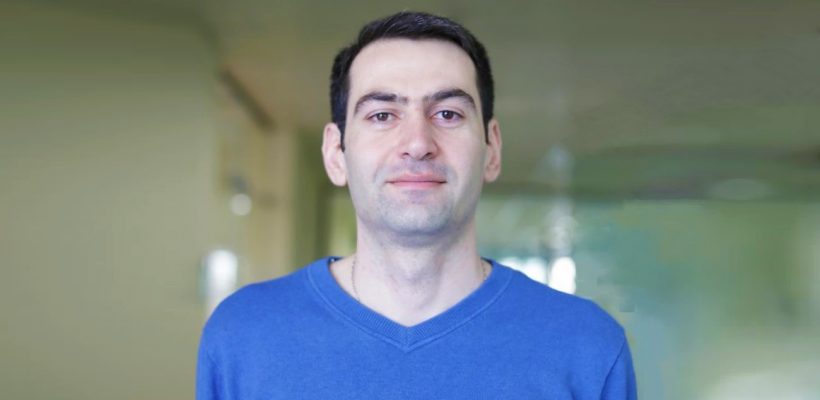
Instructor Story: Checking in with CSE’s Karen Keryan
3 min readDr. Karen Keryan, adjunct lecturer at the Akian College of Science and Engineering (CSE) of the American University of Armenia (AUA), joined AUA in 2013 teaching Calculus 1, 2, and Linear Algebra. Since 2013, he has been leading and coaching student teams from several Armenian universities participating in the International Mathematics Competition (IMC). Dr. Keryan has authored and co-authored more than 25 scientific publications. Together with his supervisor Dr. Gegham Gevorkyan, academician and acting rector of Yerevan State University (YSU), Dr. Keryan was awarded the RA Presidential Award 2017 in the field of Natural Sciences for a series of scientific articles published in the period 2015-2017.
What has influenced your choice of profession?
I have liked mathematics since I was a child. I can spend a lot of time thinking about different problems and even just one. Though I loved mathematics very much till 7th grade, only with the aid of one of my teachers, Zohrabyan, I made my first steps towards understanding the essence of mathematics. This teacher taught us how to give rigorous proofs and forced us to think without writing, just to imagine a problem and solve it mentally. Later I started to participate in math olympiads and mathematics became a part of my life. In spite of that, I thought of studying business. Many of my peers chose to study business. After a year of preparation for the entrance exams, I changed my mind right before the exams. This was due to a few minutes’ talk with my sister. She emphasized that I was really good at math and enjoyed it, and it would be a pity to lose one of my strong sides which would necessarily happen if I studied business. I was admitted to the Faculty of Mathematics at Yerevan State University. Then it became clear that I am going to become a mathematician.
Tell us about your scientific career. What research are you currently involved in?
I started my scientific career in 2004. I did my PhD in mathematics under the supervision of Professor Gevorkyan in 2009 and became a Doctor of Physical and Mathematical Sciences in 2018. I have mainly been working in the area of harmonic analysis, more specifically, orthogonal series. Recently it has been proved that spline sequences possess a few martingale type properties. Currently, my work concerns exploring some other martingale properties of spline sequences.
What brought you here to AUA?
Since 2011 I have devoted more time to mathematics overall. After a three-year pause, I resumed my scientific career then and started to teach at AUA in 2013 as a teaching associate to Michael Poghosyan. I like the environment at AUA. The main reasons are the following:
- The percentage of middle-level and hard-working students is quite high.
- There are a lot of students with a passionate curiosity for learning.
What do you think of today’s Armenian youth, judging from what you see at AUA?
AUA students are very open-minded, they think and express themselves freely, and they have less (or no) complexes than the older generation. Also, they are more pragmatic and are thinking of their career opportunities from the start.
What is your perspective regarding the future of Armenian academia?
The situation in Armenian academia is quite dire and it needs serious attention to avoid a collapse. It is quite clear that in the near future (in 10-15 years) we will mostly have very old researchers and lecturers if we make no fundamental changes. One should create more favorable conditions in academia to slow down brain drain and to attract more young people to academia.
What does an AUA professor dream about?
The two basic components of creating a stimulating environment for a professor are his/her students and colleagues. As you can see from my answers above, the good news is that, in my opinion, we do have enough good students in Armenia, but we also have a lack of passionate lecturers in academia. Hopefully, we will have more enthusiastic and motivated lecturers in the future! I wish that more students would make their choices of profession not solely based on career trends, but based on their individual strengths and passion. Let them use the full possible capacity of their brains!
